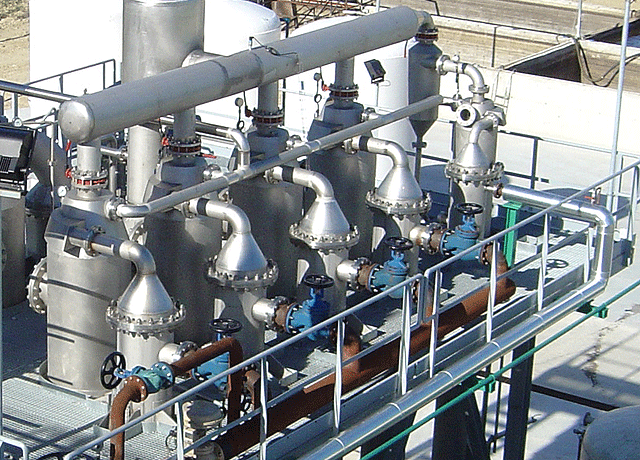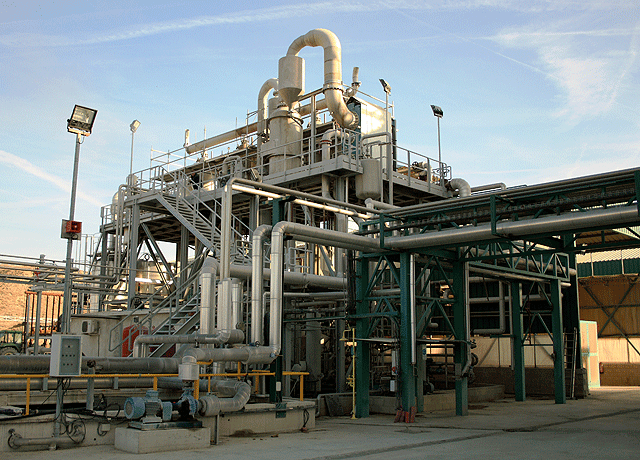Digestate Processing
HRS Heat Exchangers compare a biogas production plant that is fitted with an evaporator for digestate processing to one that doesn’t.
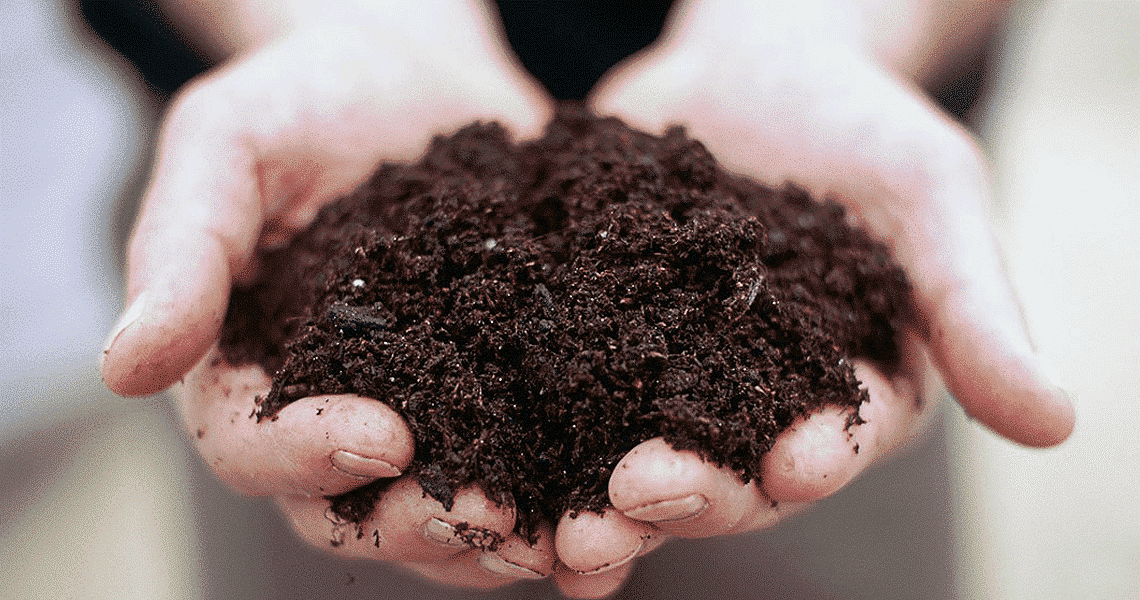
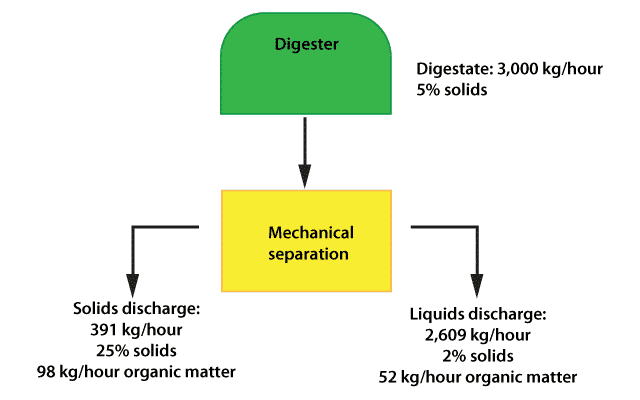
Scenario 1: Biogas Production Plant without Digestate Processing
Let us consider a biogas production plant without digestate processing:
Considering the figures shown in the diagram, after the mechanical separation process, we can get up to 862 lb/hour of ‘solid’ material. Assuming this contains 25% solids, this equates to 215 lb/hour of organic matter that can be sold as fertilizer. At the liquid discharge output, we get 5752 lb/hour of liquid, which contains 2% solids, or another 115 lb/hour of organic matter.
This liquid output:
- Contains 35% of all organic matter of the digestate
- Corresponds to 87% of total digestate volume
- May have to be sent to a waste handling firm with costs as high as $26.50 / tonne for transport and disposal.
Therefore this liquid output is costing ~$551,200 a year (based on 8,000 hours/year x 2.6 t/hour x $26.50/t).
Therefore, in this scenario the biogas plant is throwing away 35% of the fertilizer. In addition, the biogas plant is paying a lot of money to get rid of a large volume of water: more than $550,000 a year.
Wouldn’t it make more sense to reduce the liquid digestate volume on site and recover the 35% of fertilizer which is now lost? The cost for waste handling would be reduced and the income from fertilizer sales or use would increase.
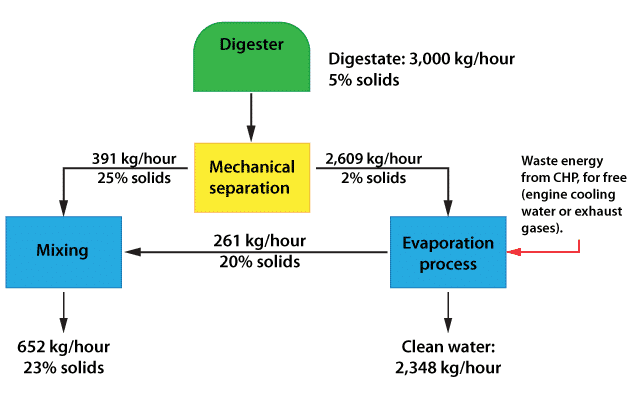
Scenario 2: Biogas Production Plant with Digestate Processing
Now, let us consider the same plant fitted with an evaporator for digestate processing to optimize the overall efficiency of the biogas plant.
You can see that in this second example, fertilizer recovery is be increased by 53% (331 lb/hour instead of 216 lb/hour), and $552,708 a year can be saved by not sending liquid digestate to a waste handler.
Return on Investment (ROI) Estimation
HRS Heat Exchangers supplies evaporation plants for digestate based on scraped surface heat exchangers.
The price level for these makes a Return on Investment possible within a very short time period, in some cases less than 2 years. Investment in an HRS evaporation plant, the DCS digestate concentration system can generate net positive cash flow within 1 or 2 years from commissioning.
Operational costs for an evaporation plant are typically less than 25% of the cost for sending raw liquid digestate to a waste handler.
Further Advantages
The combined fertilizer product (solids from mechanical separation + concentrate of HRS evaporation plant) can be dried even more to become fertilizer pellets (>90% solids), which may have a higher value and are easier to handle. An HRS multi-effect evaporation plant is far more energy-efficient in taking water out of the digestate than straight feeding of digestate to dryer plant.
Increased sales or use of fertilizer improve the economics of the biogas plant and will increase the overall ROI further.
The clean water (condensate) obtained in the evaporation process can be used as makeup water at the starting point of the biogas process, which is particularly useful for certain feedstocks and can improve the efficiency of biogas production.
Why Invest in an HRS Scraped Surface Evaporation Plant?
As a substance, digestate can foul equipment. It contains colloids and other components that would cause fouling in a thermal process. Fouling causes downtime. HRS scraped surface evaporators are self-cleaning and guarantee a continuous operation.
HRS evaporation can provide high levels of concentration of digestate. Viscous concentrates of high density are obtained. HRS scraped surface technology concentrates to higher solids contents than competing technologies.
HRS evaporation plants provide a good Return on Investment, particularly where thermal energy sources are available.
HRS digestate solutions can be supplied as individual evaporator modules or as turnkey plants.
